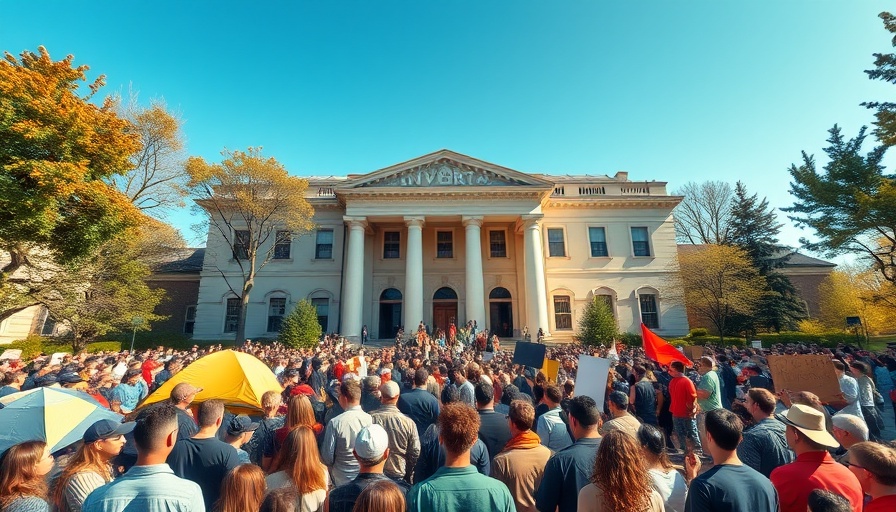
Columbia University Under Pressure: The Trump Administration's Ultimatum
Columbia University, a prestigious institution known for its academic freedom, recently faced an ultimatum from the Trump administration. In order to avoid the loss of billions in federal funding, the university agreed to implement sweeping reforms in response to accusations of antisemitism and mismanagement regarding campus protests. The administration's hard stance, outlined by interim president Katrina Armstrong, has stirred significant controversy and debate about its implications for academic freedom and free speech across universities in the U.S.
The Nature of the Changes: A Closer Look
Among the reforms Columbia has consented to are new oversight for its Middle Eastern studies department and a revised definition of antisemitism. Additionally, the university will enhance the staffing and resources of its Institute for Israel and Jewish Studies. Such changes raise questions about the balance between maintaining federal funding and preserving academic independence.
Reactions from the Academic Community
Immediate backlash ensued following these announcements. Many faculty members and free speech advocates expressed concerns, claiming that the university's compliance risks endangering intellectual inquiry and diversity on campus. Donna Lieberman of the New York Civil Liberties Union stated, "Columbia's capitulation endangers academic freedom and campus expression nationwide," framing the issue as a critical battleground for educational institutions across the country.
Impact on Campus Dynamics
Columbia's decision also initiates a new set of operational procedures. For instance, students will no longer be allowed to wear face masks on campus to conceal their identities, an attempt to curb the anonymity often used in protest activities. The university is set to hire additional public safety personnel with arrest powers, stirring fears that campus protests could be stifled under the weight of increased security measures.
Potential Ramifications for Higher Education
This situation is not an isolated occurrence. It marks a rapidly changing landscape of higher education in America, where federal funding increasingly ties universities to regulatory compliance that could undermine traditional academic freedoms. The Trump administration's push for these changes reflects a strategic approach towards controlling educational narratives, particularly concerning sensitive topics like international relations and ethnic studies.
Comparing National Trends in Academic Regulations
Columbia's predicament is part of a larger trend affecting universities across the nation. Other educational institutions have also faced pressure from lawmakers addressing issues of campus safety, speech, and ideological diversity. As seen in states like Florida and Texas, similar legislative initiatives have sparked debates about free expression and the role of government in education. The national environment suggests increasing scrutiny and, at times, intervention by political actors into academic policy.
Broader Implications and Future Considerations
The changes at Columbia University may set a precedent, inviting scrutiny not only on how universities govern themselves but also on how they respond to external pressures from political forces. As federal funding becomes more contingent upon compliance with specific ideological standards, institutions may find themselves navigating increasingly complex waters of academic freedom versus funding requirements.
What Lies Ahead for Academic Freedom?
The implications of this situation reach far beyond Columbia, potentially setting a nationwide standard for how universities confront and rectify allegations of bias or discrimination within their academic frameworks. What does it mean for future generations of students if higher education institutions begin to align more closely with political agendas? Students, faculty, and administrators must engage in an informed dialogue about the future direction of academic policies.
In Conclusion: The Call for Balanced Discourse
As universities like Columbia undergo significant transformations under external pressure, the need for a balanced discourse around academic freedom, funding, and the integrity of educational institutions has never been more paramount. Engaging in these discussions can help ensure that academia remains a bastion for open inquiry and diverse perspectives, rather than a playground for political machinations.
 Add Row
Add Row  Add
Add 




 Add Row
Add Row  Add
Add 








Write A Comment